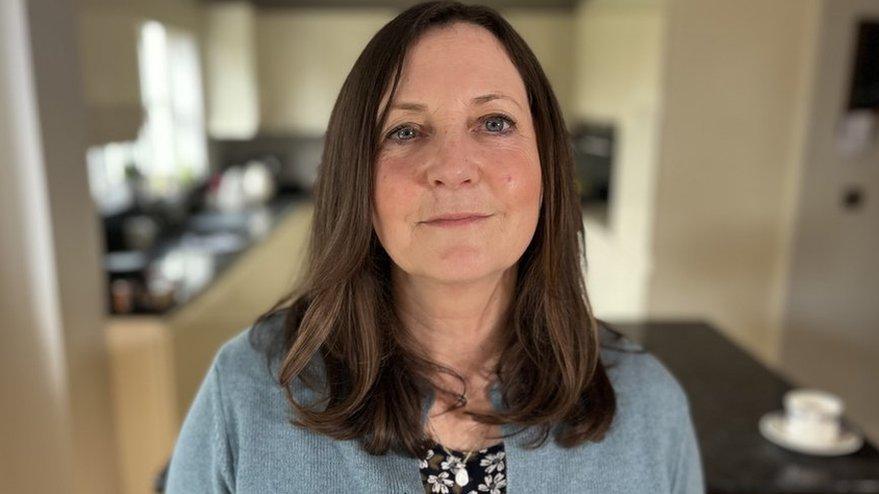Hospitals get 'game changing' radiotherapy machines
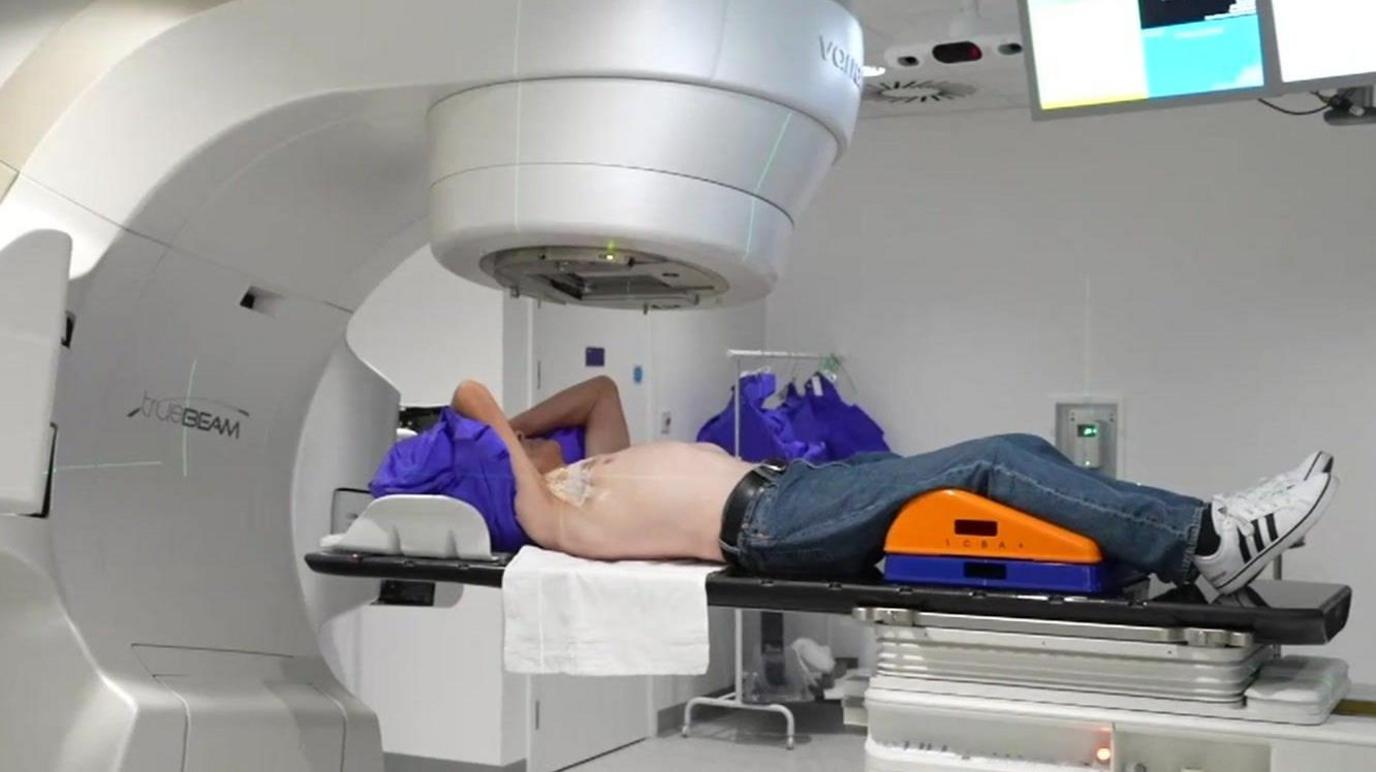
The new technology reduced treatment time and increased accuracy and patient comfort
- Published
Cancer patients at two NHS hospitals are being offered a new type of radiotherapy treatment described as "a complete game changer".
Surface Guided Radiotherapy (SGRT) uses light beams and advanced cameras to create a unique 3D outline of a patient's body to improve accuracy and treatment time.
The Norfolk and Norwich University Hospital (N&N) spent £1m upgrading existing equipment, while Addenbrooke's Hospital in Cambridge spent £4m on new machines capable of delivering the technology.
The N&N said it would soon be offered to treat every type of cancer.
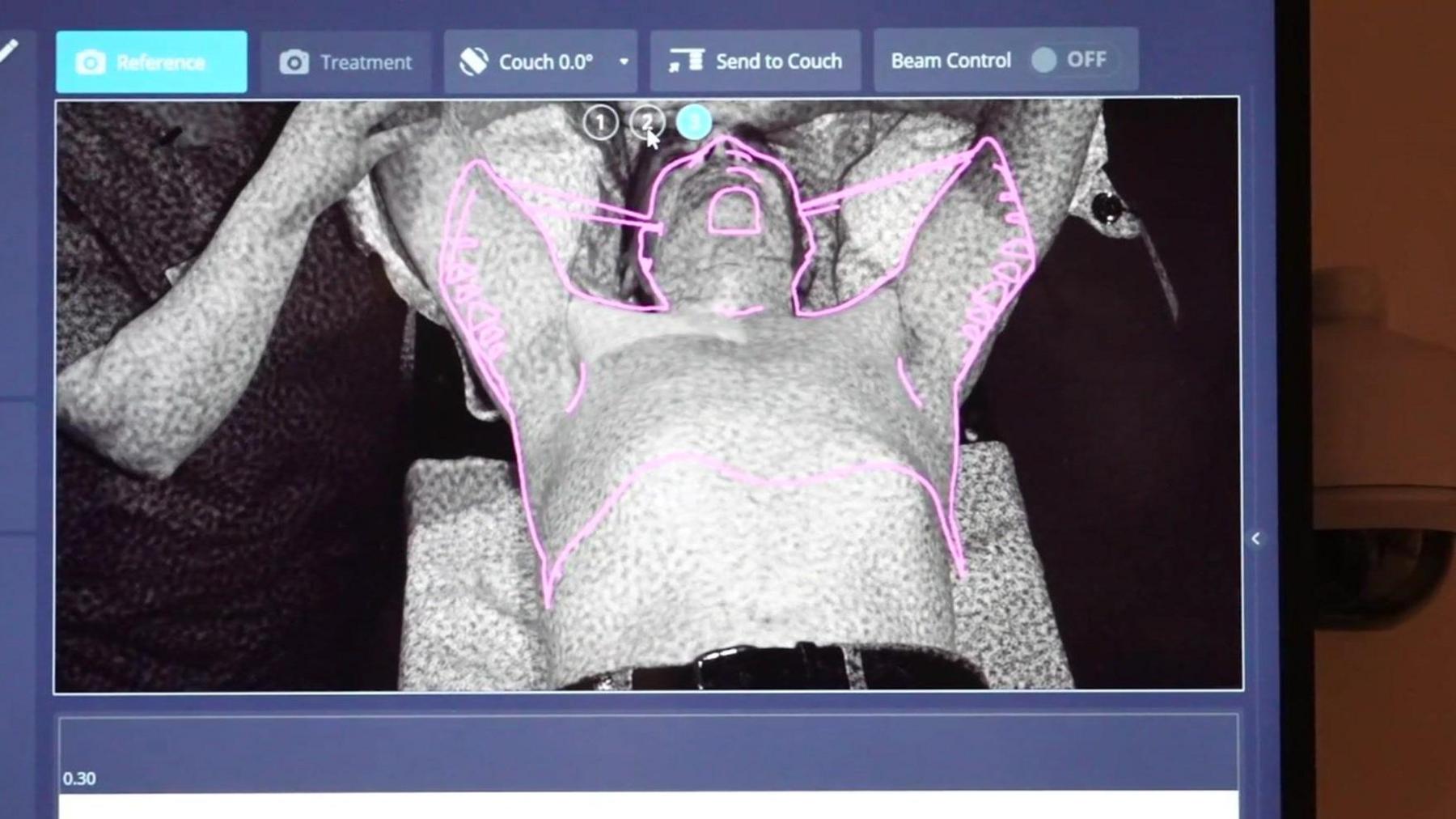
The treatment automatically cuts out if a patient suddenly moves
Radiotherapy is the use of powerful X-rays to target and kill cancer cells.
In the past, therapeutic radiographers have made small tattoos, external on a patient's skin to pinpoint exactly where to deliver the treatment for multiple appointments, without damaging healthy tissue.
SGRT replaces the need for tattoos and the machines will cut out if a patient moves out of position.
"The old technology meant you're on the bed and they're moving you about for quite a while before they eventually walk out of the room and hit the button," said John Starling, 68, a cancer patient from Attleborough in Norfolk.
"But now they set you up with the three cameras, the bed gets you where you need to be and you're in and out."
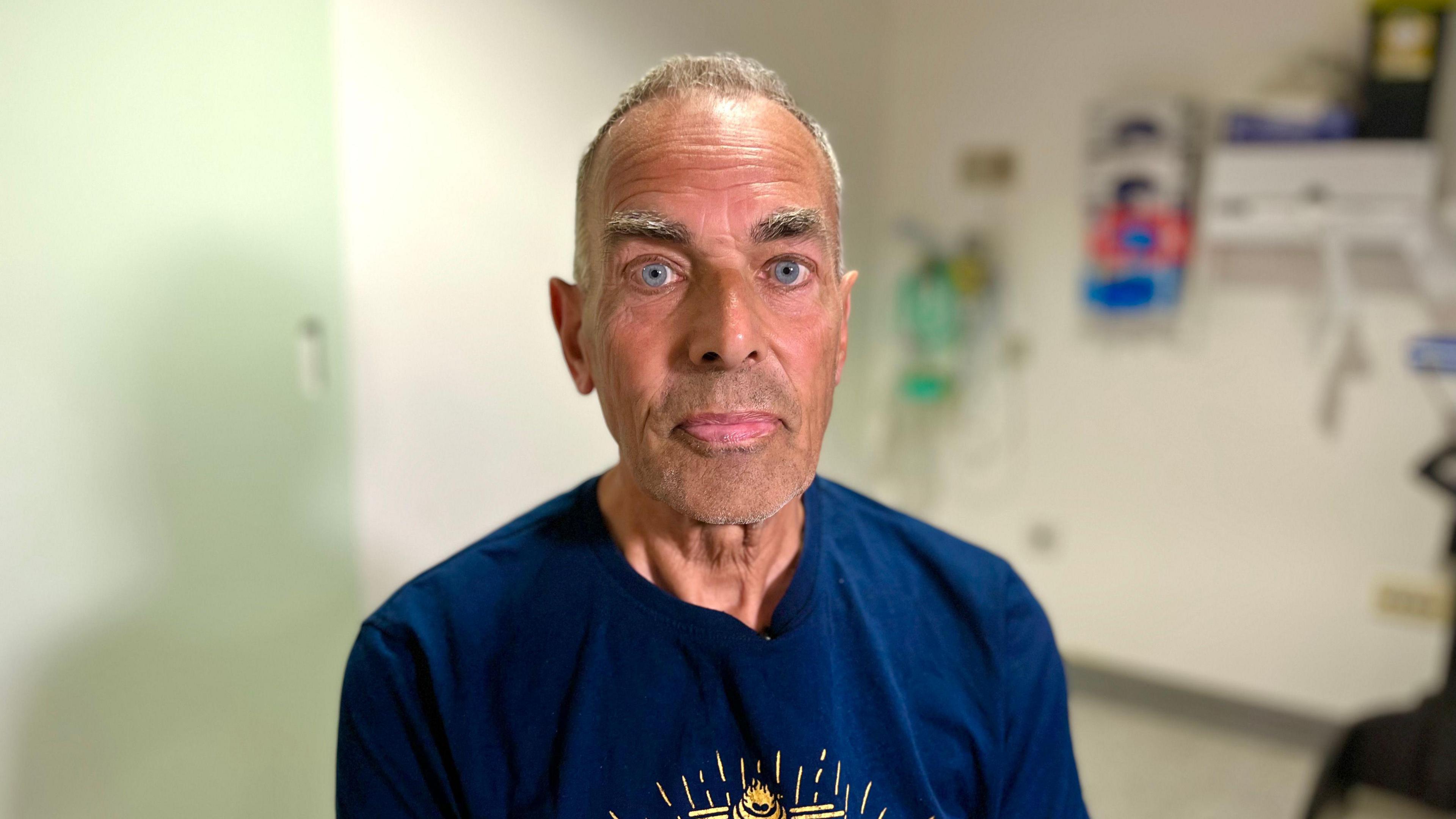
John Starling is being treated for lymphoma, a type of blood cancer
Five radiotherapy machines at the N&N and two at Addenbrooke's Hospital will deliver SGRT - with a third machine planned at a later date.
Jo Thomas, a therapeutic radiographer at the N&N, described the technology as "cutting edge" and a "complete game changer for patients".
"If a patient coughs or sneezes and moves, more than a set tolerance, the beam will cut out and treatment will stop, so that the treatment is only delivered to the intended target," she said.
"Previously we had to rely on watching patients from outside the treatment room."
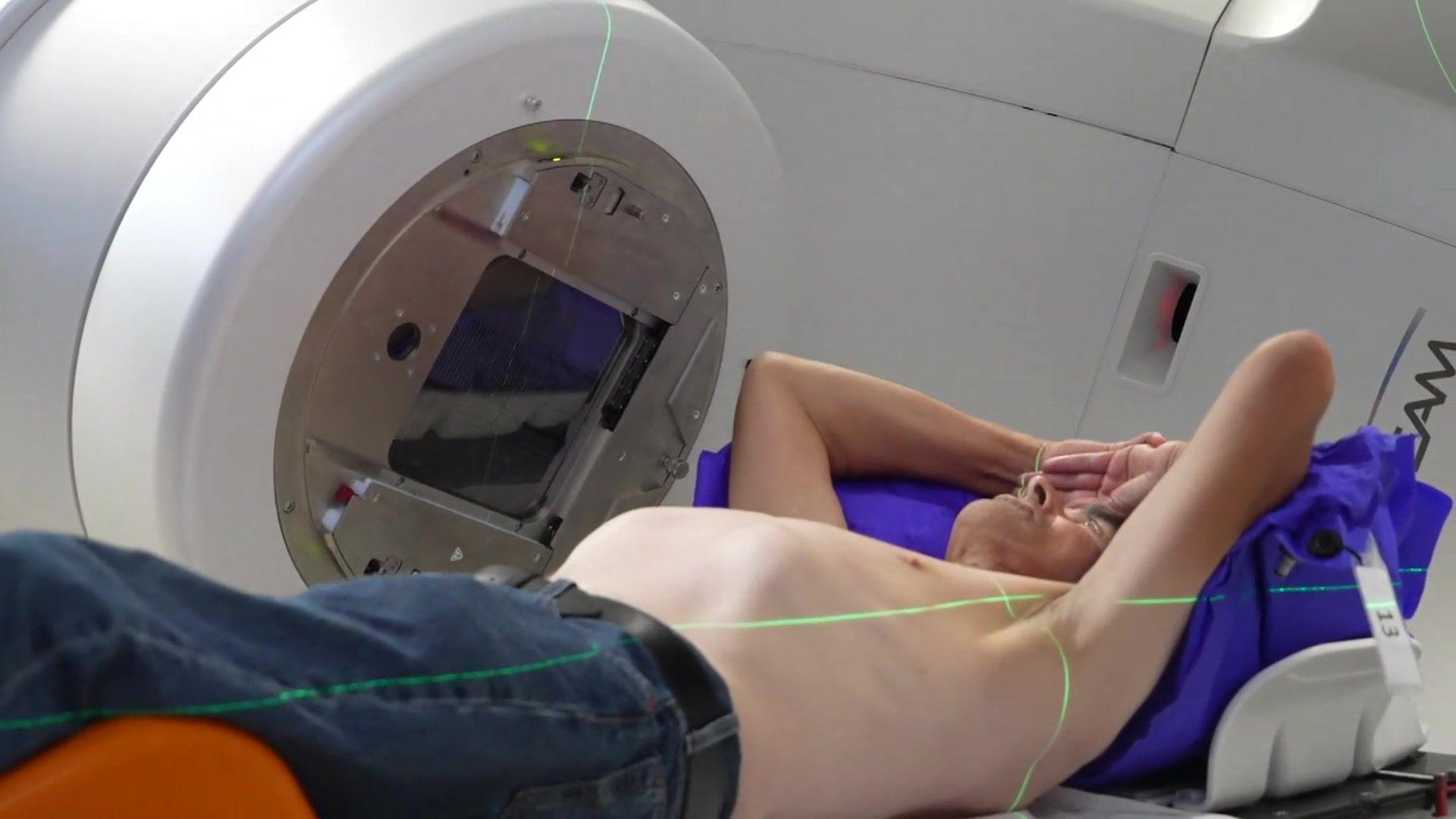
The new technology removed the need for small permanent tattoos
The treatment will initially be used by Addenbrooke's Hospital to treat breast cancer before being expanded.
Andrew Robinson, head of radiotherapy physics at Cambridge University Hospitals NHS Foundation Trust (CUH), which runs Addenbrooke's Hospital, added: "Our teams have worked hard over the summer to test and train on the system, and it is rewarding to see our patients benefitting from the increased accuracy and efficiency of SGRT."
Get in touch
Do you have a story suggestion for Norfolk?
Follow Norfolk news on BBC Sounds, Facebook, external, Instagram, external and X, external.
- Published27 June 2023
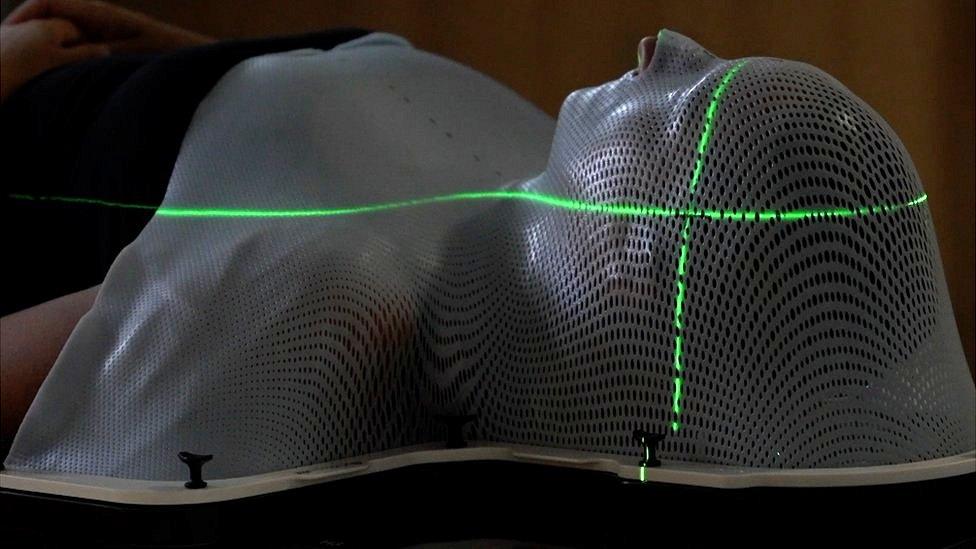
- Published13 June 2024
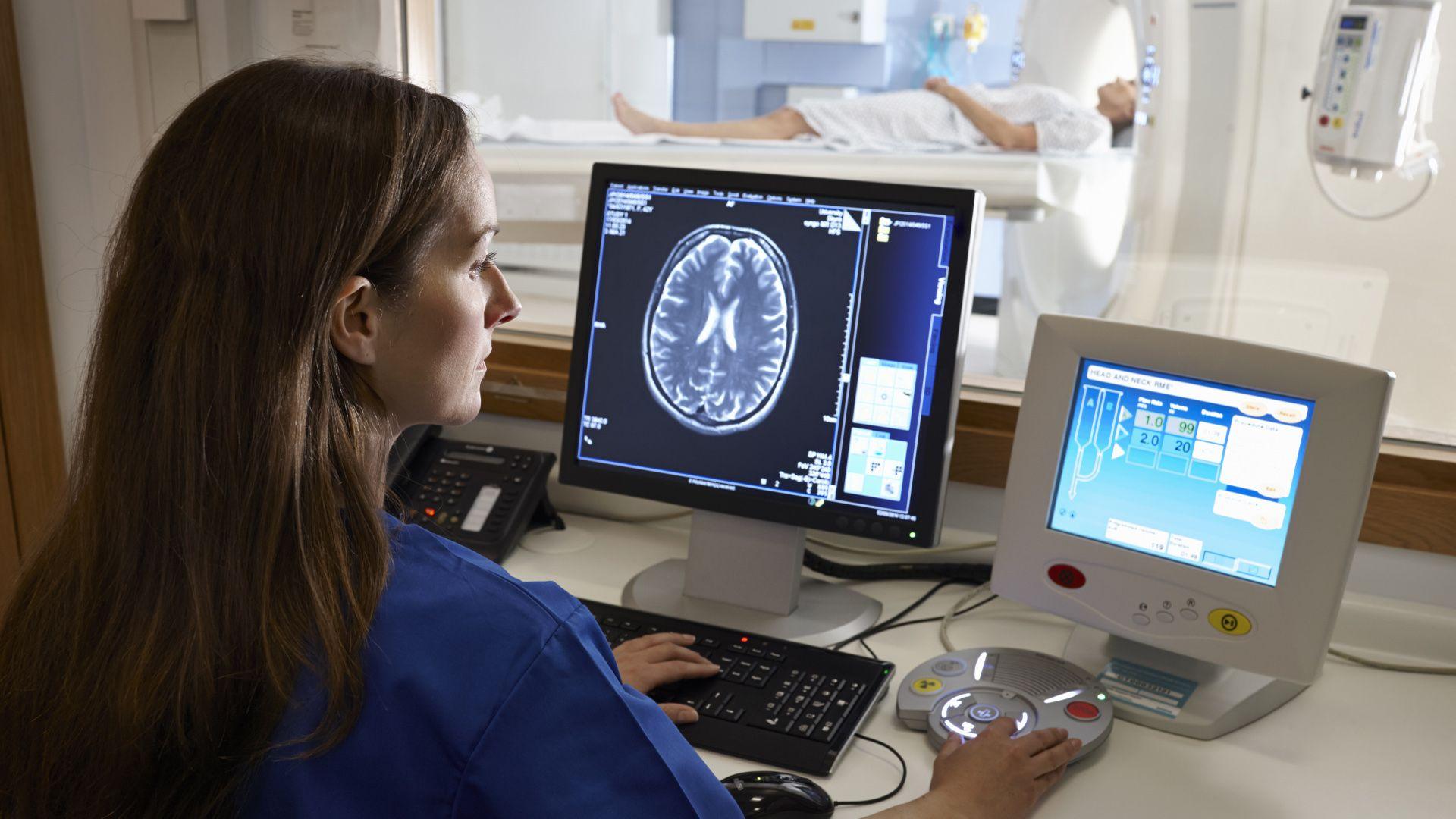
- Published11 March 2024
